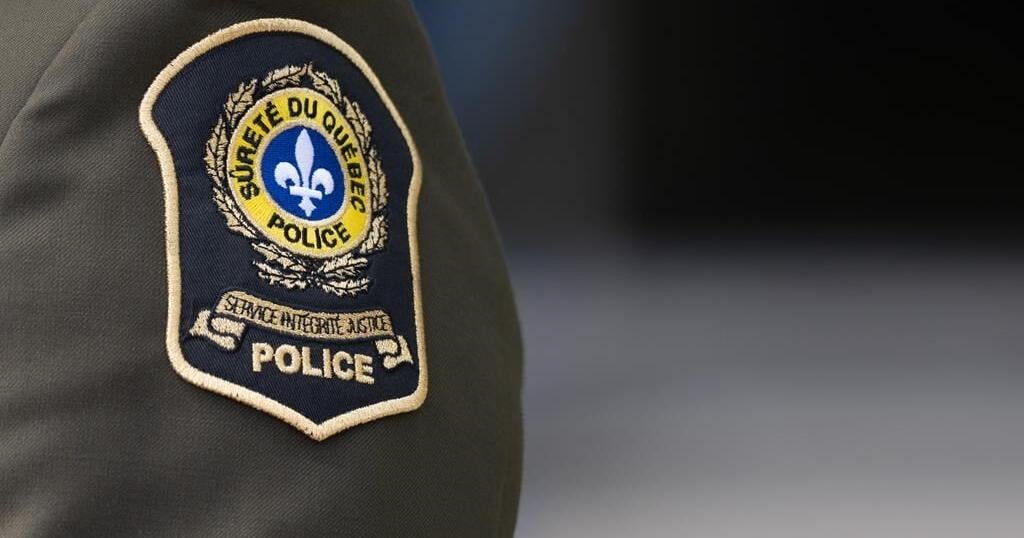LIMA, Peru – Prime Minister Justin Trudeau says he’s been advising world leaders to focus on common goals with Donald Trump ahead of his return to the White House, as Canada shores up its relations with countries across the Pacific Rim.
“Donald Trump is someone who tends to do what he says he’s going to do,” Trudeau said at a press conference as the Asia-Pacific Economic Cooperation summit wrapped in Lima, Peru.
Trudeau said leaders have a better sense of what’s coming from a second Trump administration than they had in 2016.
“A lot of countries are focused on building up resilience and capacity to respond to those challenges, as opposed to wondering whether or not those challenges are going to materialize. I think people know those challenges are going to materialize.”
Trudeau said formal and informal talks at the APEC summit were dominated by worries about how to navigate Trump’s return to the U.S. presidency in January, particularly given his promises for sweeping tariffs on all American imports.
The APEC group aims to resolve trade barriers and grow economies across the Pacific Rim, but it’s been challenged by rising protectionism by the likes of Trump.
Trudeau is one of a few world leaders who was also in power during Trump’s first term, and said his message to his colleagues is to emphasize the “win-wins” of trade deals.
“People are being thoughtful about how to position themselves over the coming years in a way that’s going to be constructive,” he said.
“It’s an approach that is perhaps a little less surprised or anxious than it was eight years ago when Donald Trump was first elected.”
Trudeau said various leaders have sought his advice, though he would not name the countries turning to Canada, nor would he characterize what region they come from.
Canada signed a new trade deal with Mexico and the U.S. in 2018 after Trump ended the North American Free Trade Agreement, and Trudeau said he used that as an example for other countries. The Canada-U.S.-Mexico Agreement is set to be reviewed in 2026.
Trudeau said Mexico has been a “solid partner” in the negotiations of that deal, but he said Ottawa has concerns about the amount of Chinese investment in Mexico.
He said Trump asked him specifically about Canada’s approach to trading with China when the pair spoke last week, and he highlighted Ottawa’s new tariffs on Chinese goods.
Last month, Canada brought in 100 per cent tariffs on Chinese electric vehicles, along with 25 per cent on steel and aluminum. The government is now eyeing import taxes on batteries, solar components and critical minerals from China.
Beijing says these measures hurt both economies as well as the world’s transition away from fossil fuels, but Canada says China is using unfair subsidies and could threaten countries whose industries depend on it.
Chinese President Xi Jinping also loomed large at this year’s APEC summit, as Beijing pushes for closer economic and cultural ties to South America.
Trudeau’s office said he had “a brief exchange” with Xi, and that it was along the lines of discussions Trade Minister Mary Ng and Foreign Affairs Minister Mélanie Joly had with each of their Chinese counterparts.
Ng wrote in statement on Saturday she had a “direct and candid discussion” on the need for “fair and equitable trade,” citing issues ranging from market access to forced labour.
Joly told reporters Friday that “we need to have a predictable relationship” with China and that she had said foreign interference is not acceptable.
Xi this week unveiled a mega port in Peru, and newspapers and billboards around Lima have been promoting Chinese companies. An ad from one Chinese alcohol maker shows Machu Picchu and the Great Wall of China, wishing a successful APEC summit in both Spanish and Chinese.
It’s in that context that Canada announced how it would use $35 million in previously allocated funding for programs across the Pacific Rim region.
The largest projects involve improving access to reproductive health care for women in Peru, fighting domestic violence in that country, and fostering sustainable communities in Peru’s Andes region.
The funding includes a $3.9-million investment in the BlackBerry Cybersecurity Centre of Excellence in Malaysia, which will train 3,500 people from across the region in an effort to boost local jobs in government, research, and industry.
Another project involves integrating at least 2,500 Venezuelan refugees with medical degrees into Peru’s medical system.
Trudeau met Saturday with Peruvian President Dina Boluarte as well as Chilean President Gabriel Boric. And on Friday, he announced that negotiations were complete for a trade agreement with Indonesia, the world’s fourth most-populous economy.
Trudeau has also announced that Canada will seek to expand nuclear-energy collaboration across Southeast Asia, particularly for countries grappling with how to adequately power computers and data centres used for artificial intelligence.
The prime minister argues that would bring jobs and more regional clout to Canada.
This report by The Canadian Press was first published Nov. 16, 2024.
